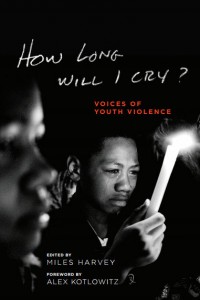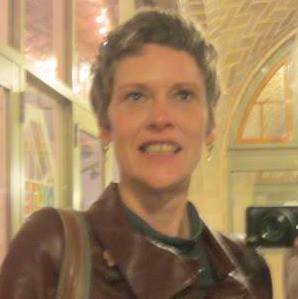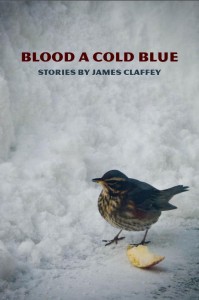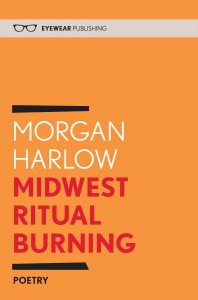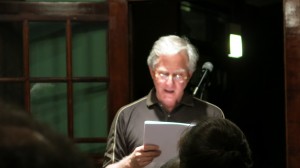 I was pleased and honored when Michelle Elvy asked me to do an Editor’s Eye for Fictionaut. She sent me the following instructions: “choose stories or poems that do not appear on the Recommended list, with only a few ‘faves’ or none at all.” Thanks for this opportunity, Michelle!
I was pleased and honored when Michelle Elvy asked me to do an Editor’s Eye for Fictionaut. She sent me the following instructions: “choose stories or poems that do not appear on the Recommended list, with only a few ‘faves’ or none at all.” Thanks for this opportunity, Michelle!
Before I announce the work I picked for the Editor’s Eye, I should lay out my criteria for doing so.
What do I look for when I look at work on Fictionaut?
First, I look for complete work. I do not like to read parts or excerpts of larger wholes. I do not think it’s possible to appreciate, assess or understand a part separate from its whole. I need to see the whole thing. In my teaching, I teach only whole works. (I generally hate anthologies with their worthless little snippets of things.)
I read only finished work. I do not see Fictionaut as a workshop—there are groups on Fictionaut where writers can workshop pieces and get feedback. When a story or poem is published on Fictionaut, I want it to be a finished work, not a draft. Well, people can do whatever they want to do. My preference and practice is not to read and comment on a draft.
I prefer work that has been revised and polished. I like to see work on Fictionaut that has been vetted by an editor and published. I don’t like to see on Fictionaut work that has just been written that morning or the night before. All the work that I post to Fictionaut is at least a year old when I post it. You may not all have my patience, but I would caution you not to rush your work. What is the rush, really? Wait until it is ripe. “The ripeness is all,” right?
I don’t enjoy reading works written from specific word prompts. These always just strike me as clever solutions to annoying puzzles. When you are given a group of words to incorporate in a story or poem, the work of imagination is already completed for you. For me, a prompt is the whip of someone else’s imagination. Writing according to a prompt is merely following a set of directions. I prefer imagination unfettered.
What do I like?
I like work that is well written. Write well and everything else is forgiven. I am avid for good prose. For me, language is the essential element. Everything else is secondary. So I look at the opening paragraph or the opening lines of a poem and evaluate the writing qua writing. If it doesn’t begin well, it’s not going to end well. Samuel Johnson had it right: “when I take up the end of a web, and find it packthread, I do not expect, by looking further, to find embroidery.” He’s not talking about a “hook” in the beginning of a story or a poem, by the way. He’s talking about the specific words you choose.
I like works that are edgy, that attempt something, that push the envelope. I like to be surprised. I like to be astounded. I like to be shocked. But writers who try to be edgy or surprising or shocking generally bore me because they try to be edgy and surprising and shocking in very conventional ways. Or they just try to be shocking for the sake of being shocking. That’s not how to be shocking.
Lastly, endings. The ending must live up to the beginning. I hate nothing endings, throwaway endings. Be an Olympic gymnast in your writing. If you don’t stick the landing, you’re not going home with the gold.
OK. Here are the overlooked and underappreciated stories and poems I picked by writers new to me, Fictionaut writers I have never commented on:
The subject matter (a father dying) is moving in and of itself and many Fictionaut writers have memorably addressed this subject. What I like about Richard’s story is the control he shows in his writing.
Take a look at the structure of and the rhythm in his opening paragraph:
“Satchmo sings a love song over the sound system. People read books, tap keyboards, drink coffee, eat cake. In Barnes & Noble—more a coffee shop these days than a bookstore—I am thinking about my dad and his stomach cancer.”
The first sentence divides neatly between the direct object and the prepositional phrase. The first half of the sentence is lyrical and timeless, the second half realistic and rooted. And so goes the whole piece, alternating between the present and the past, between disease and health, between existing love and impending loss. The second sentence is nicely balanced and firm in its insistence that “and” is not needed before “eat cake.” The third sentence is rightly periodic. Note the colloquial observation inserted perfectly between long dashes that introduces the idea of change (“these days”).
I like the word choices (I’ve bolded the ones I think are especially effective) in the next paragraph as well.
“The terror he has fought to keep at bay most of his life now growls at his door. “Oh dear, oh dear, oh dear,” I hear him saying, the way he would cluck on the motorway when he missed his turn. As death stalks him, I feel I should be back in England to say, as he said to me many times, “Don’t worry. Never mind.”
The father’s words (“‘Oh dear, oh dear, oh dear,’ I hear him saying”) sandwiched between the terror and the motorway are effective and also help paint his portrait. Conscious artistic decisions like the three (rather than two—it makes a difference!) “oh dears” excite me. I like writing like this that is conscious, careful, and precise.
The story also has wonderful texture and depth—Laurie, the Wyeth paintings in the Farnsworth Gallery, the mother’s dementia, the brother, the doctor…but also the latch! the piece of string! the Tower Ball Room in Blackpool! Like the arms of the dancing parents of the narrator, it all entwines.
Great story, Richard!
P.S. If I were to edit this piece, however, I’d delete the last line and end at “How strange that this music should be playing now.”). That is more moving to me. The last line feels superfluous.
This is a beautiful piece, not just in the longing the narrator expresses toward his wife at the end, but in the way the piece continuously undoes and redoes itself.
Paragraph 1: “I used to read this poem in my youth…yet its meaning hurried on just ahead of me like a doe spooked by my footsteps.”
Paragraph 2: “I did not understand its meaning until college…. The poem opened up then with all its splendor.”
Paragraph 3: “It contributed…to my belief that poetry is larger… than life could ever be.”
Paragraph 4: “That was then. But then today… I can’t help but realize how small Frost’s words are.”
This is structurally marvelous, but it is also marvelous because it understands that plot is not action but understanding. Not epiphany—understanding. And misunderstanding. And understanding again. And understanding differently. The thinking process, muddy as it really is. The twisted human trajectory of trying to figure it out.
Love this, Steven. Excited to have discovered it.
Mysterious and haunting. Wolfe makes the reader believe there’s something (“the wound”) worth figuring out here. I think it’s the “I.” [“I found nothing… I walked away… Don’t know if I can…”] Also the presence of connected bits: “lapin leg” and later rabbits; “you see” and then “If there was anything to see in the sea”]. Eccentric but not nonsensical.
I appreciate precise word choices like “highlighted” and “lapin.” [“castrated male rabbit”]
I like memorable phrases like “the loving kind of wind,” “the godly answer,” “the rash gift of darkness,” “the breathing parts,” “the feeling part of my arms,” and “fleet darkness.”
I enjoy surprising turns like “God touches down at right angles,” and “I found nothing for me through his door and knew it was meant for me.”
Minor quibbles:
The lack of standard punctuation in “Holding my hug, a bear hug standing in the dark, I’ve had it to here you see.”
“beyond yellow right angles”—interesting but made less effective because readers have already read “God touches down at right angles”
“tidal oceanic wave”—“oceanic” is a good word but it adds nothing to “tidal wave.”
“what I had left of God that bend from…” typo? Make grammatical.
Your piece gave me a lot of pleasure, Wolfe.
Looks like a story but reads like a poem.
I like the voice (or voices) in this poem, much louder and more assertive than “that small, still voice” announced in the first line. Interesting inversion of the Biblical phrase: “And after the earthquake a fire; but the Lord was not in the fire: and after the fire a still small voice [italics mine] (1 Kings 19:11-13)
It’s both the voice of “polished beach glass and jade knees” [beach glass is, by definition, already polished by the ocean—is this glass polished on top of that?] and “Plus, how do I know you’re truly sorry? It’s not my fault / you’re locked out of the house, / that somebody lifted your wallet and finally, now you see / my silence is my answer. So there!”
Fun play with language (“A stitch in time in search of a seamstress”) and surprises galore: “rides a white camel and wears black legwarmers during this eternal monsoon season.”
“Delta. Nine. Delta.” This is funny also!
As is: “It’s raining starfish amputees.”
As is: “Dear Distraction, the closest weapon of convenience, please explain the vintage Zorro masks and acrylic hair attachments…”
This poem is finely written, not “as we penitents are / hopelessly in need of revision.”
“So there. Show me or tell me—it doesn’t matter.
Brilliant close, Miranda! (BTW, in this poem you do both wonderfully.)
My kind of title! My kind of prose poem.
Pulp and flesh falling into dry grass is a gaze you cannot shake is sun following the ax handle the grit in the grain that burns like acid on the blade is salivating over your disgrace is rotting peaches and the warrior you want to be is useless sound. Worn leather boots, you are your past, dismantled and placed in buckets is venom and holy water and open hydrants, these are your last rights, the bruise that bled.
I like a work that strains, that sweats excessively, that tries to do too much at once, as this piece wonderfully does.
The high points in sentence one:
“is…is..is…” That structure.
“a gaze you cannot shake”
“sun following the ax handle”
“salivating over your disgrace”
“rotting peaches” (from out of nowhere!)
The high points in sentence two:
“you are your past”
“open hydrants”
Keep turning the screws! Keep kicking out the jams, Peter!
I love this piece because, despite the many places it could easily go wrong, it refuses to go wrong. That is especially true of its beginning and its ending. No thesis. No moral. Thank you!
It also has a lovely rhythm with many compound-complex sentences alternating with simple sentences. Those tripartite constructions echo the triangle of characters here.
As here:
“Emma and I were in a shabby part of town with vacant lots and overgrown yards, and I wondered if something would happen as we loped beside Tom, who was slow-witted and 21. We were 13, and it was dark, but I wasn’t afraid. My parents were doctors.”
And here:
“He cupped his face in his hands, looking at us, and Emma touched his soft hair and long body. I touched him, too.”
This story, despite its familiar loss-of-innocence theme, is brilliantly imagined, structured, and told.
An amazing moment:
My parents were doctors. When they hugged me, they scanned for disease, so I was used to a low-level atmosphere of alarm.”
An even more amazing moment:
“Tom’s penis stood up. I didn’t have a brother.”
The only discordant note is the word “raying”—too aware of itself as writing.
The rest (with special kudos to the title) is perfection.
Bravo, Laurie!
~
Afterword
Getting Noticed on Fictionaut: Thoughts on the Recommended Page and Related Topics
The Recommended pages are longer (thirty stories per page on my monitor) than when I joined Fictionaut in April 2010, which is great—Fictionaut is recognizing and celebrating more outstanding work. But when you look through the sixty-six recommended stories currently up, ten of those stories have zero comments or only one comment and all ten have zero faves. So that’s confusing. The algorithm for appearing in the Recommended section (I thought it was based on the number of comments and faves—not just the number of reads) is not transparent.
And stories in the Recommended section tend to be self-perpetuating because people (it seems to me) turn first to the Recommended section and comment on the stories and poems already there (often the stories or poems by writers they are familiar with and whose work they have liked in the past) so a good story or poem with comments and faves gets even more comments and faves as it gets more and more readers. And with thirty stories on the first page, fewer readers may get to the second or third page of Recommended stories.
So where does that leave the work in the Most Recent stories tab? Do people go there first? They should, and some do (some must!), but I suspect most do not. (No, I have no hard or even anecdotal evidence for my feeling this is the case. Someone please supply some.) I generally go to the Recommended page first and see what people think is good and then read the work and see whether I agree with them or not. If I get through all the Recommended stories, then I turn to the Most Recent stories tab and see what’s there.
To get around the problem of getting one’s most-recently-posted work read, some people have taken to posting the news of a new story or poem on Fictionaut on Facebook or Twitter. I don’t do this myself, but I think this is smart. It’s honest advertising. I myself appreciate the alert and sometimes am led to work on Fictionaut by these announcements. But this solution just underscores the problem: how do people get their work noticed on Fictionaut?
The first tab on the home page is the Recommended tab. If we are really interested in promoting all work equally, maybe the Most Recent tab should come first.
___________________________________________
Bill Yarrow is the author of Pointed Sentences, a full-length collection of poems published by BlazeVOX in 2012 and two chapbooks—Wrench published by Erbacce Press in 2009 and Fourteen, published by Naked Mannekin Press in 2011. He has been published in many print and online journals including PANK, Poetry International, Thrush, DIAGRAM, Contrary, and RHINO. He is a Professor of English at Joliet Junior College where he teaches creative writing, Shakespeare, and film. Two chapbooks (Incompetent Translations and Inept Haiku from Červená Barva Press and The Lice of Christ from MadHat Press) are forthcoming in 2013.
Editor’s Eye is curated by Michelle Elvy (Fictionaut profile here). She writes and edits every day at michelleelvy.com, and readers can also find her editing Blue Five Notebook (with Sam Rasnake) and Flash Frontier.
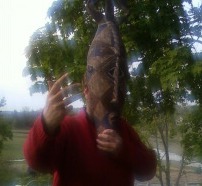
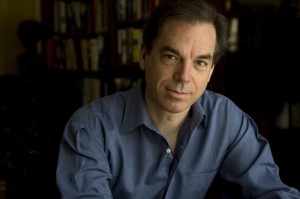 We are pleased to welcome American journalist and versatile author
We are pleased to welcome American journalist and versatile author 